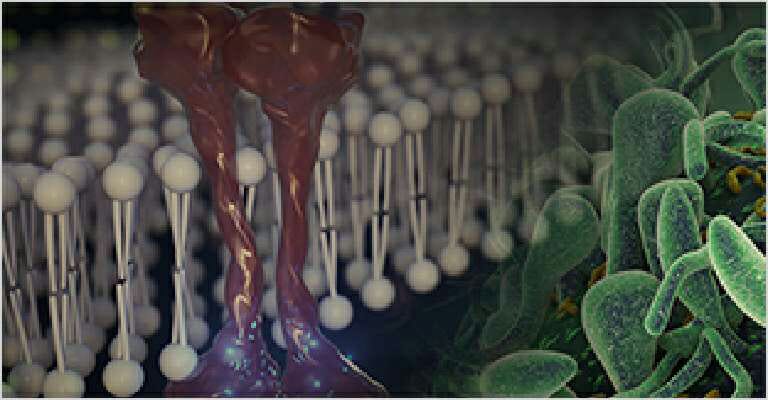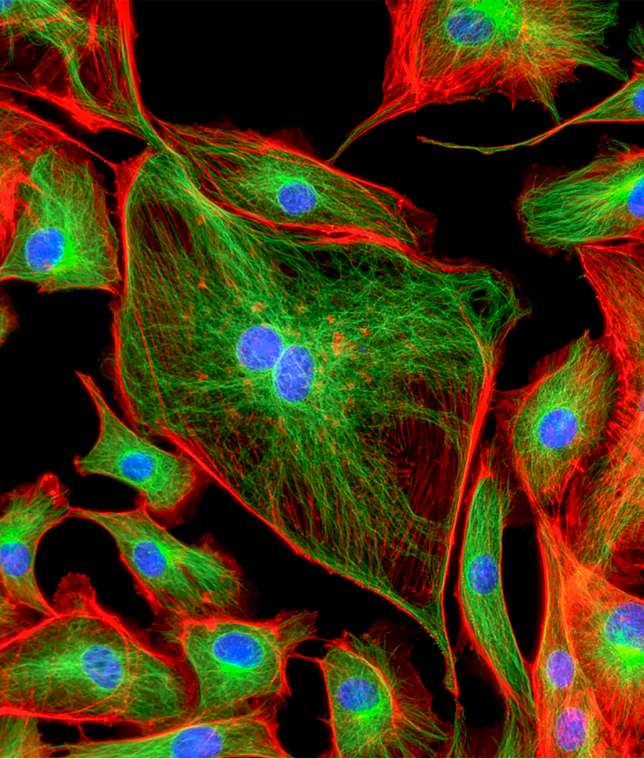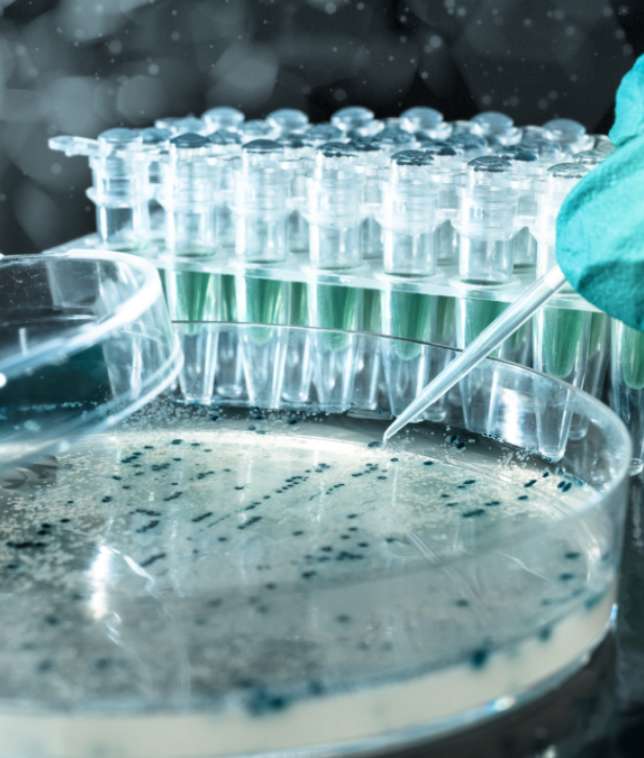
The latest research in immunology
At the Biodesign Institute, our experts are using the latest research in immunology to make new treatments and vaccines for infectious diseases and cancer, as well as immune disorders and diseases like Type 1 diabetes, rheumatoid arthritis, lupus and allergies.
We create technologies to help us understand the human immune system, deliver personalized medicine and diagnose disease earlier. We also share these innovations to accelerate research in other laboratories around the world.
Frequently asked questions
Immunology is a branch of biology and medical science that studies the immune system. Immunology is important because understanding how the body defends itself from infection helps scientists create more effective treatments for disease as well as vaccines that prevent illness.
When your body can resist infection from a particular virus or bacteria, you are considered immune. Once you are exposed — by natural infection or vaccine — your immune cells defend you by creating proteins called antibodies, which fight the infection. Afterward, your immune cells will remember that source of infection; if you are exposed to it again, these cells will recognize it and fight it off before it causes illness.
Immunotherapy is a class of treatments that activate or enhance the immune system so that it resists a target disease more effectively. So far, it’s been used to fight cancer, but in the future it may be applied to other diseases as well. One example is monoclonal antibody therapy, which gives patients antibodies that are lab-engineered to attack specific proteins on cancer cells. Another example is CAR T cell therapy, where white blood cells called T cells are taken from the patient, engineered to recognize and attack cancer cells, and then put back in the patient’s body.
It’s been well established that cancers create proteins that the immune system can recognize. The Biodesign Center for Innovations in Medicine is currently exploring a vaccine target for breast cancer. If we could vaccinate an individual with a collection of proteins that a breast tumor might produce, the immune system would arm itself against breast cancer. If this platform technology proves successful, it could be applied to other cancers.
The immune system exists throughout the whole body and involves many different parts working together. Most immune cells grow from stem cells made in bone marrow. There are many kinds of immune cells, like killer T cells that destroy infected cells, B cells that can become plasma cells, plasma cells that make proteins called antibodies, and helper T cells that aid other T cells and B cells. These cells circulate through the bloodstream and the lymphatic system, where they patrol for infection. Organs such as the spleen, thymus and tonsils are important hubs where your body stores, matures or uses immune cells. Mucous membranes like those found in the respiratory and digestive tracts trap germs and destroy them with enzymes. The intestines also harbor good bacteria that fight bad bacteria.
Collective effort and support
Our research efforts bring together interdisciplinary teams of immunologists, virologists, molecular biologists, engineers, DNA sequencing experts, programmers, biostaticians, clinicians and many others, while providing learning opportunities for graduate and undergraduate students.
In addition to grant funding from national research agencies, this work also thrives through the support of charitable foundations, like the Virginia G. Piper Charitable Trust and the Open Philanthropy Project, as well as collaboration with other research institutions, such as Mayo Clinic in Arizona and the U.S. Army Medical Research Institute of Infectious Diseases.
149
Diseases under study at the Biodesign Institute
Fighting infectious diseases
The importance of being prepared for outbreaks is all the more clear after the epidemics of recent years, including SARS, Ebola virus disease and the COVID-19 pandemic. The institute has ongoing projects to explore how viruses cause disease, understand the human body’s immune response, reveal the ways that viruses evade it, and develop vaccines and therapies.
Paving the way for personalized medicine
In the future, health care will rely on personalized medicine, providing treatments tailored to each individual and the specific causes of disease. Our goal is to improve therapeutic care by ensuring that patients are treated with the right medicine for them, while reducing negative side effects, as well as the cost and time wasted on ineffective therapies. Biodesign scientists are learning the roles of proteins and their dysfunction in disease, knowledge that is crucial toward developing truly personalized treatments.
Diagnosing health issues sooner
We believe innovative diagnostic technologies have the potential to transform medicine. Improving disease detection — including infectious disease, autoimmune disorders, allergies and cancer — can lead to earlier treatment and more lives saved. Biodesign Institute is developing effective early diagnostic tools, including microchip-based technologies that would allow people to monitor their health from a drop of blood, detect diseases before symptoms appear and measure vaccine response.
Creating cancer vaccines
The Biodesign Institute is collaborating with Mayo Clinic in Arizona to eradicate cancer by developing preventative vaccines and microbial therapeutics against cancer. These vaccines take advantage of the immune system’s ability to recognize proteins created by cancers. A near-universal, preventative cancer vaccine is already in a clinical trial in dogs.
A “Living Drug” That Beats Cancer | ASU KEDtalks® featuring Karen Anderson
Latest news on immunology
Related experts
Related centers

Virginia G. Piper Center for Personalized Diagnostics

Center for Applied Structural Discovery
Related facilities
Studying immunology requires specialized equipment. These facilities support this work.
Advance our efforts
Support immunology research by making a donation.






